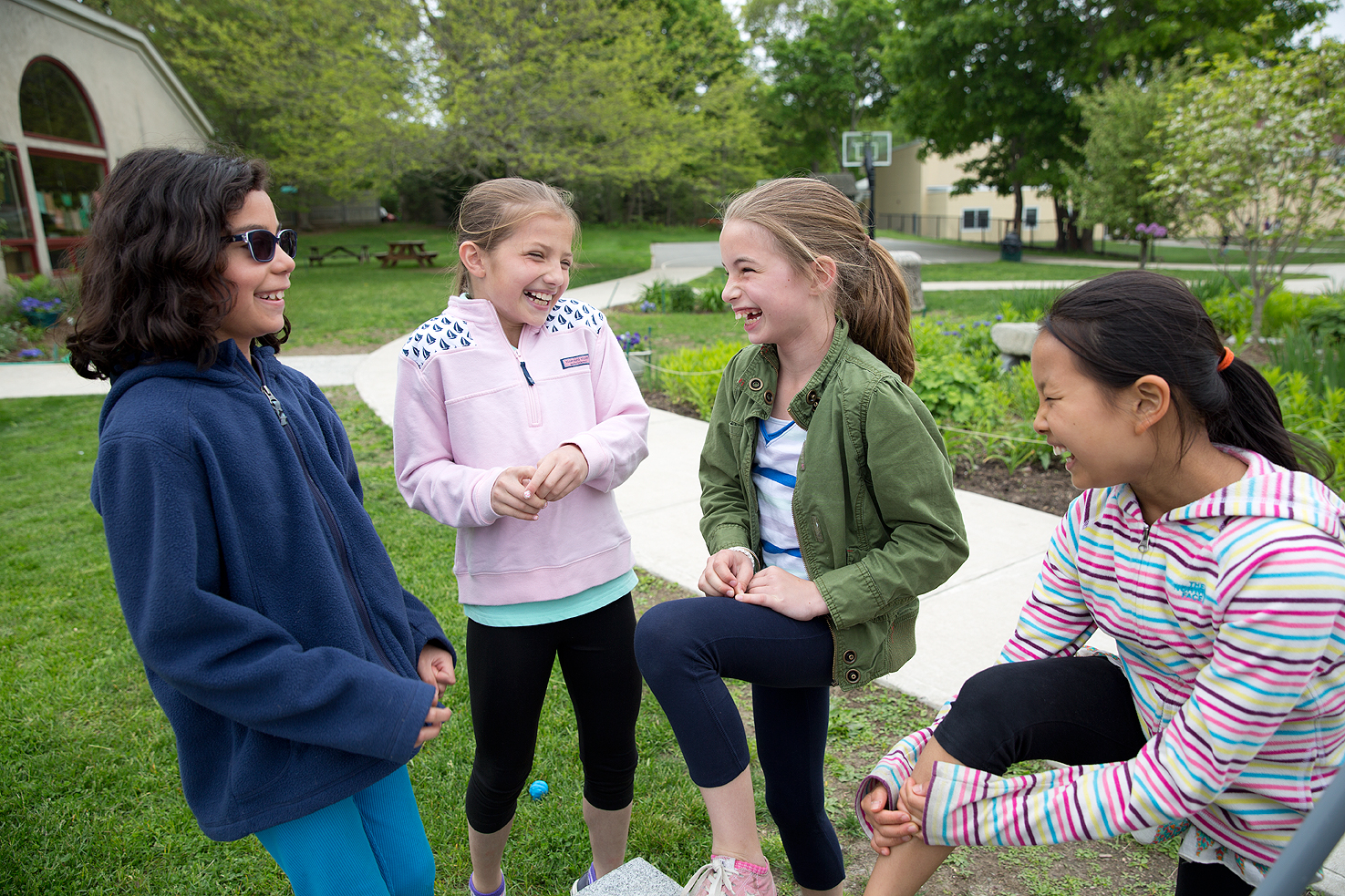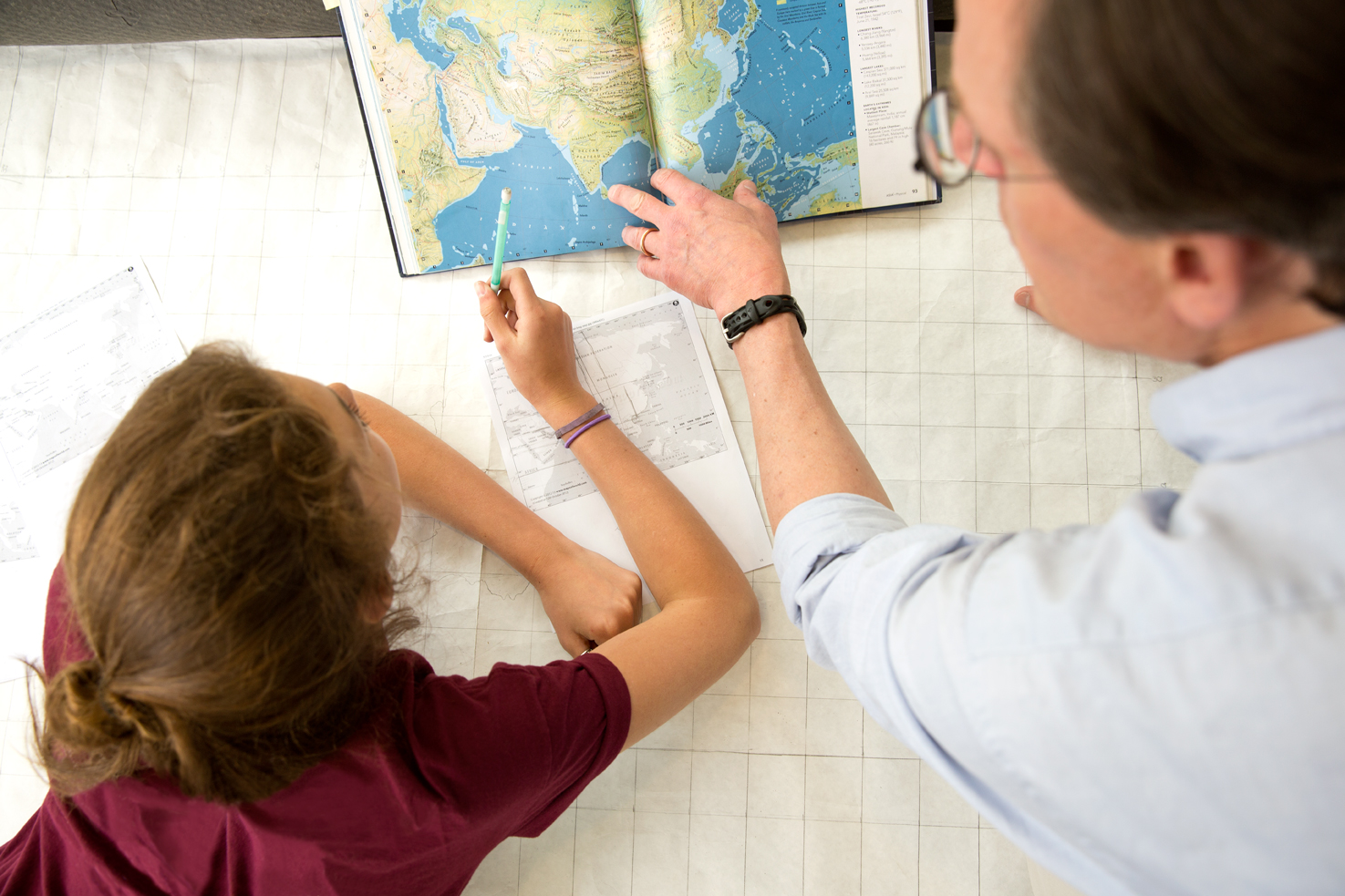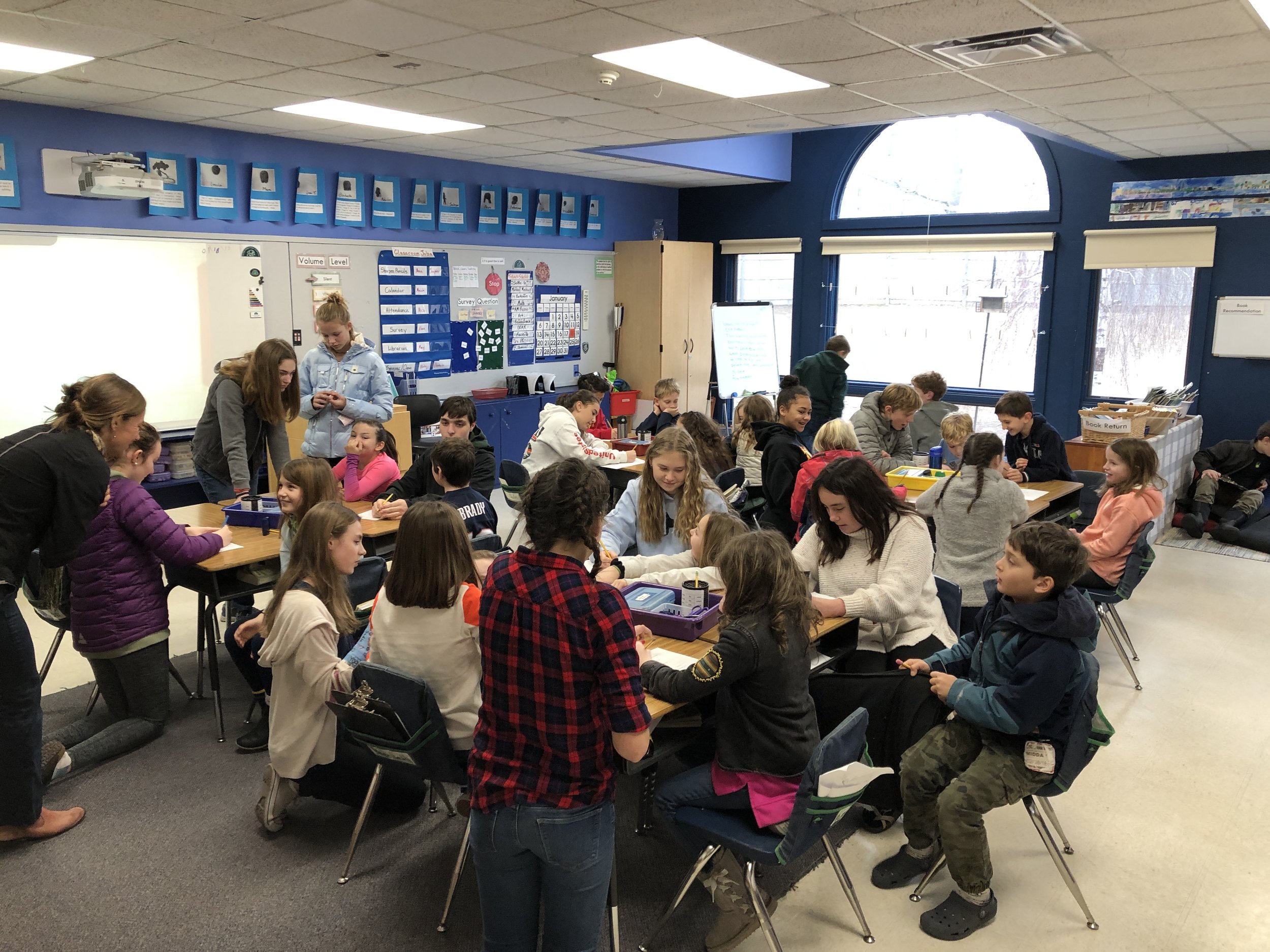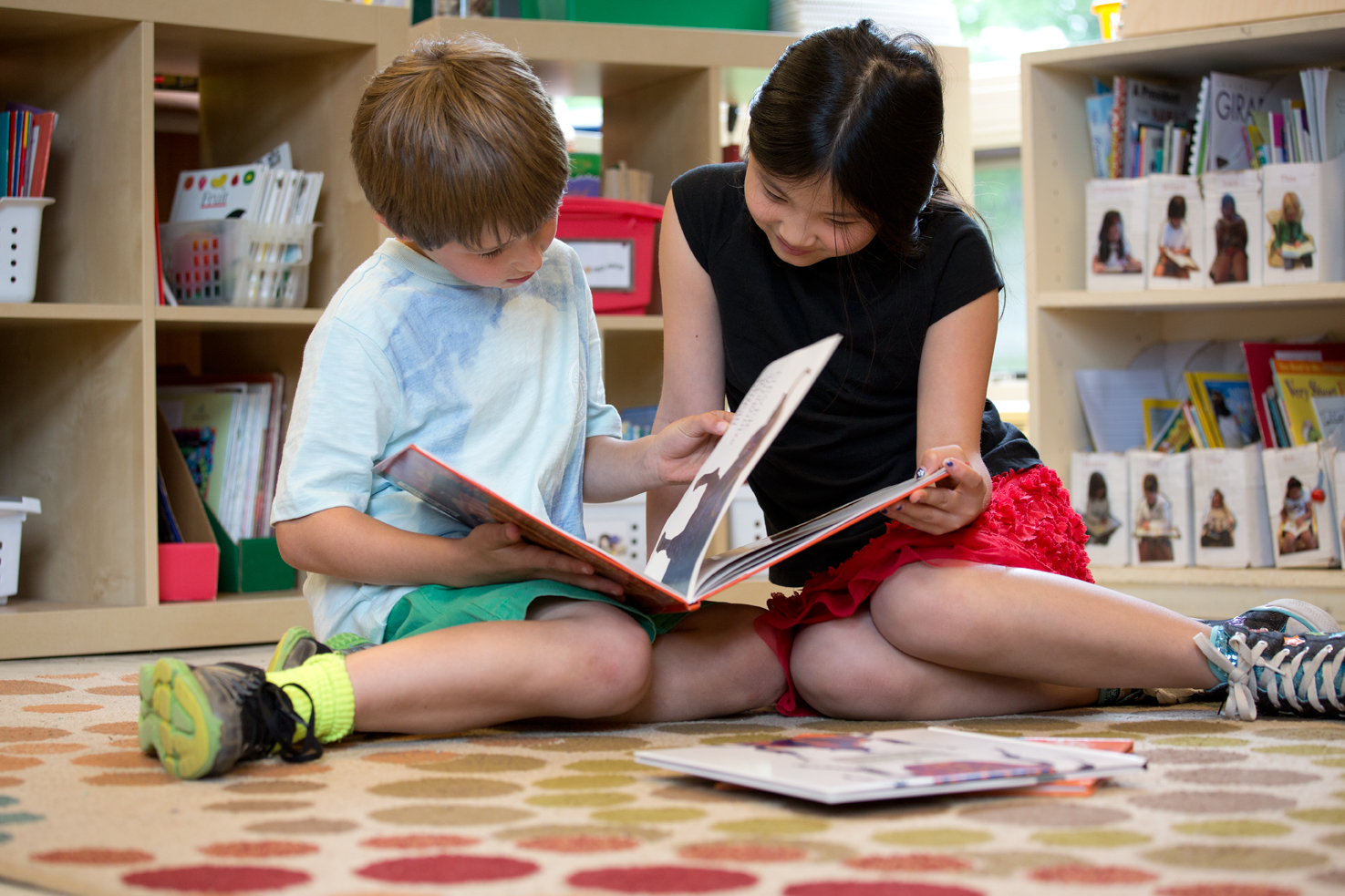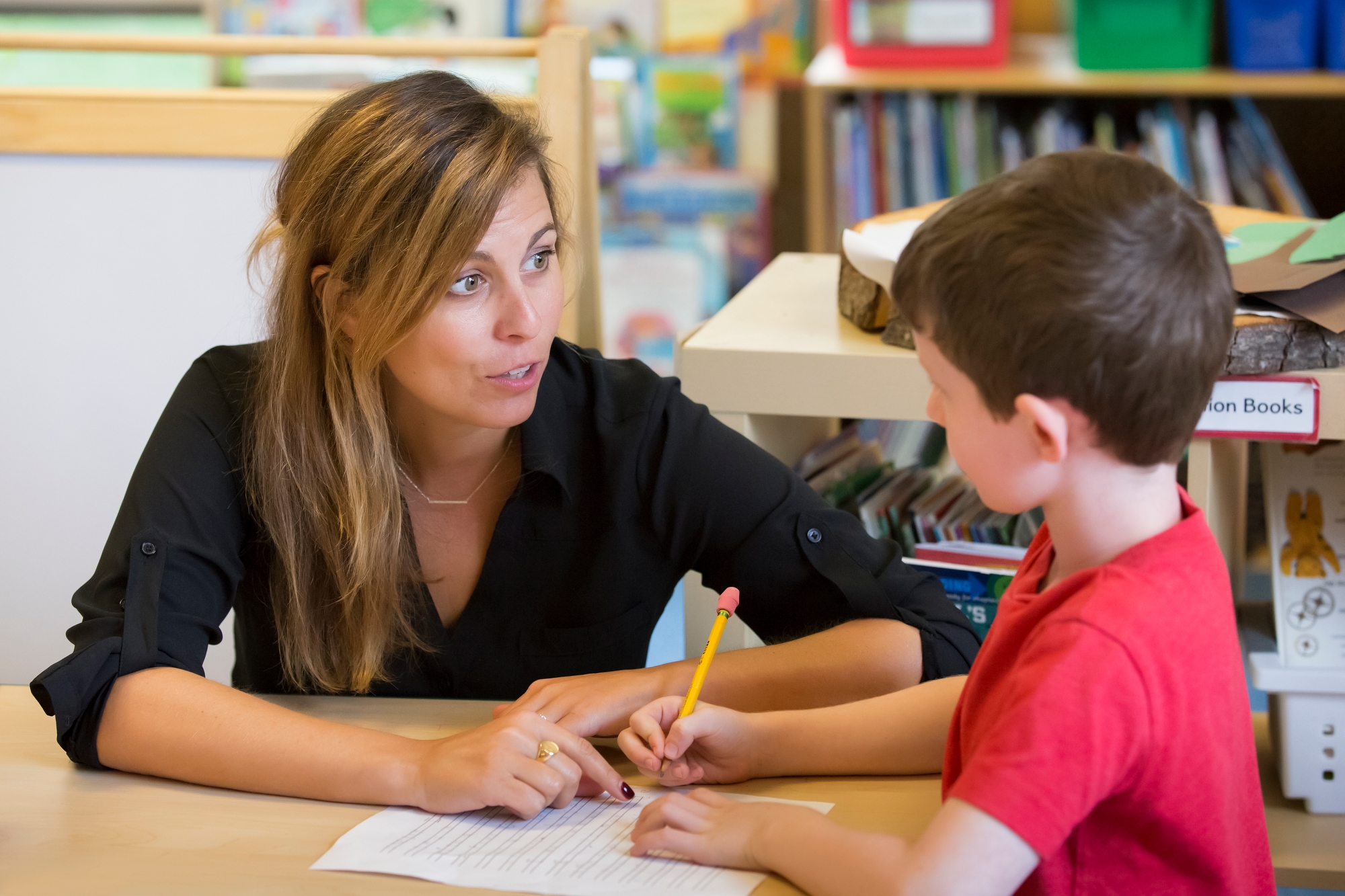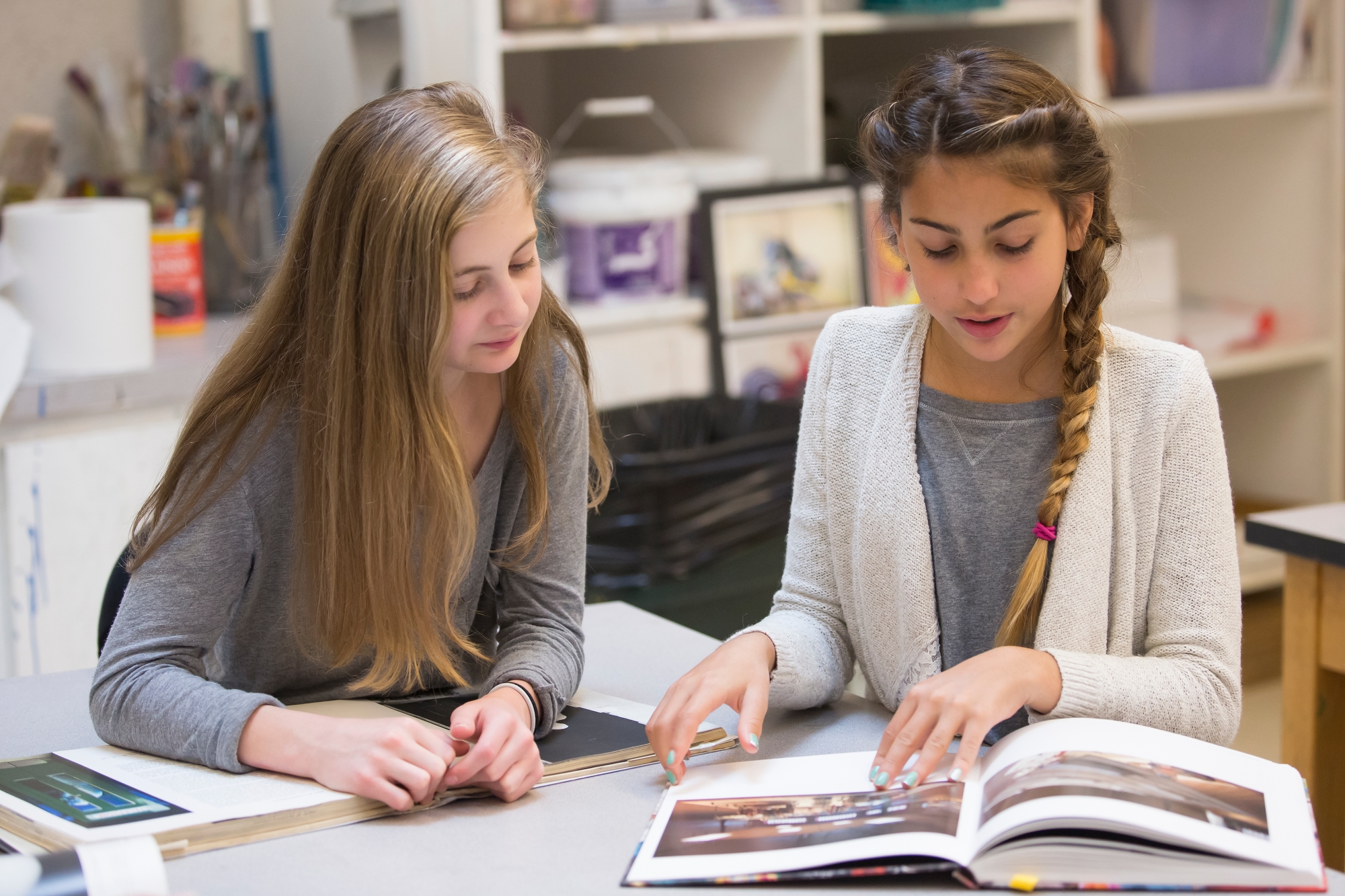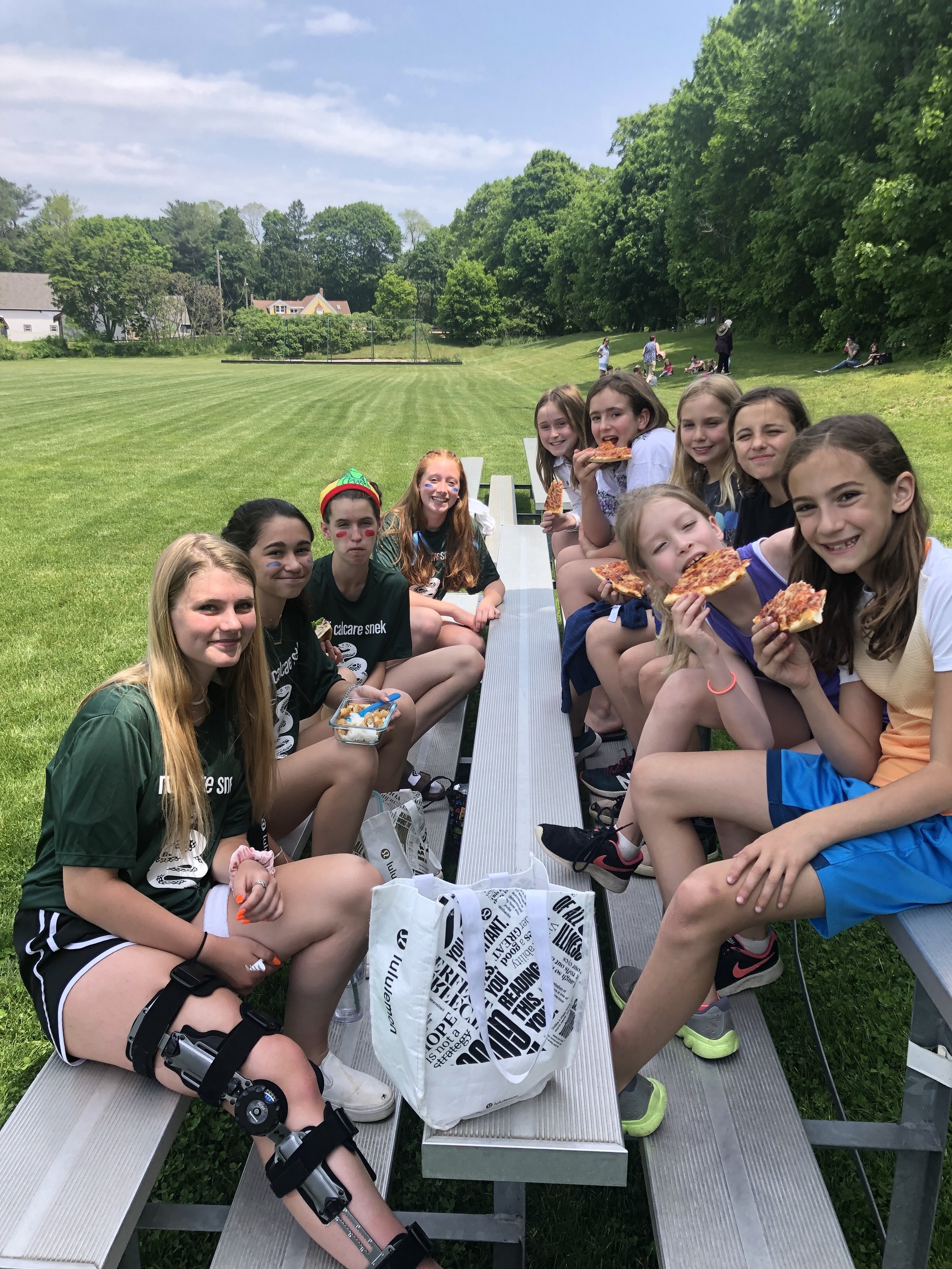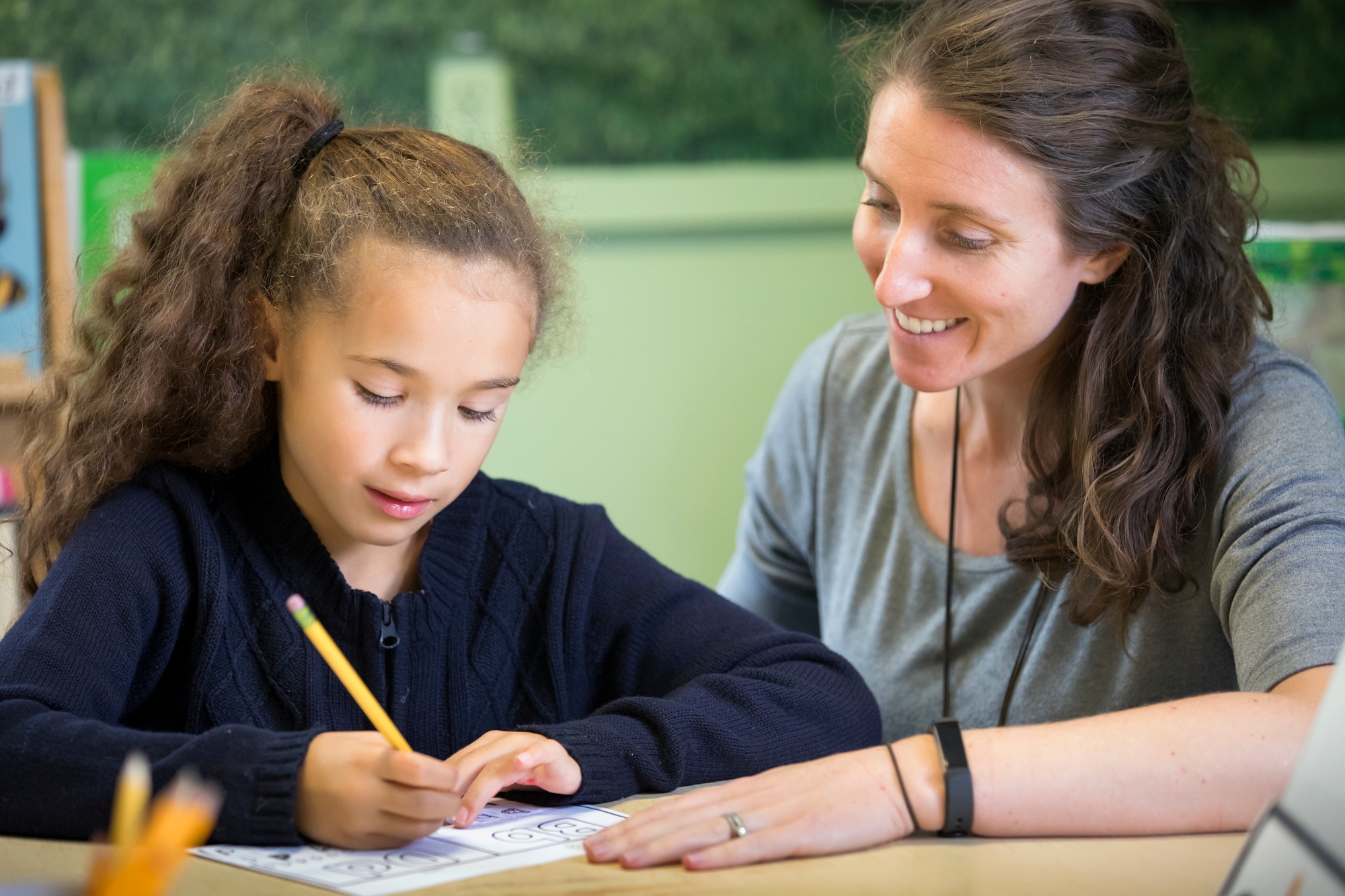We know that students thrive best when they receive intellectual challenge and emotional support in a caring environment.
At Glen Urquhart School, we are deliberate about providing a structure for healthy emotional and social growth that promotes strong relationships and a positive self-image so that students can concentrate on their learning and reach their academic potential.
Just as children need to be taught algebra and chemistry, they also need a deliberate education in being good human beings, compassionate members of their community, and responsible citizens of the planet. We know our students become good people because we work hard to make sure they understand what that means and why it is important. We do this in the same way we do everything—by weaving our lessons into many areas of school life: service learning, community partnerships, advisory groups, life skills classes, and our academic program. To that end, strong character development begins in pre-k, on day one.
There are many schools that can prepare children to succeed in life. We are preparing our students to change the world.
+ Partner Classes
Students in grades kindergarten through four are partnered with another student in grades five through eight. For example, kindergartners are paired with fifth graders. Through shared activities, partners develop a special relationship that provides the younger student with an older buddy and gives the older student the opportunity to be nurturing. In this way, the school encourages friendships to extend across the school community.
+ Lower School Open Circle
Lower school students begin each day with Circle Time or Morning Meeting, which is an important part of their daily routine. Students and their teachers share concerns about school life, current events, and personal interests and triumphs. Classroom rules arise out of and are reviewed during Circle Time throughout the school year. Assembly or holiday themes and special all-School projects might also be the focus of Circle Time activities. In addition, all lower school classes participate in the “Open Circle” program, which is a curriculum developed to help students develop healthy social skills. Classrooms often end the day with a class meeting as well.
Twice a week we engage students in a lesson from our Open Circle social-emotional curriculum. We gather in an open circle - open because we include on extra space to underscore that there is always room for another voice and no one is ever left out - for a short lesson and conversation, or a story and an activity.
+ Upper School Student Life Program
Our Student Life program strives to build strong connection between all members of our community in order to create a learning environment where everyone feels valued, respected, and understood. As a result, our students can focus on learning. There are several components to our program, giving students and teachers an opportunity to establish rapport and build trust. These relationships are essential to the character of Glen Urquhart School and provide a solid base for character education. We work in partnership with parents to help students grow responsibly and healthily toward adulthood.
Advisory System: Each upper school student has a teacher or administrator as an advisor. Students have the option of changing, but most students will stay with their advisor for the extent of their time at GUS. As a result, advisor groups are mixed with boys and girls of all three grades; generally, there are seven or eight advisees in a group. Advisors keep an eye on each of their advisees social progress and emotional health while at Glen Urquhart School, informally tracking non-academic elements of their advisees experience at school, which can include everything from developing friendships to conflict resolution.
Advisor groups meet weekly to discuss school values, eat lunch, and share a special snack. These groups allow students to make connections across grades and strengthen our sense of community. Students share their experiences and learn from each other, with the guidance, support, and companionship of their advisor. The advisory groups discuss an agenda related to the goals of our Student Life Curriculum, usually having to do with social development and peer relations. These lunch meetings are another component of the School’s Bullying Prevention Program.
Advisors are also available for informal discussions with their advisees.
Homeroom + Developmental Designs: There are two homerooms for each grade. The homeroom serves as “home base,” where students store their belongings, eat lunch, and do chores. Homeroom starts at 8:15 a.m., and students begin each morning with a greeting, a time to share, and an activity. These activities create a family-like atmosphere where students treat each other with respect and kindness. The goals of the program are to promote a sense of community within the class and to develop positive social skills within each student, all of which are part of our Bullying Prevention Program. At the end of the day, there is a checkout procedure for making sure students are organized to leave for home. The class reviews the assignments for the day, and students make sure they have all the appropriate materials for any homework assignments.
Life Skills: The weekly Life Skills period in the upper school gives students a chance to explore non-academic topics of value to young teenagers. Topics discussed in past years have included drug and alcohol use, peer relations, decision-making, communication, media education, preparation for secondary school, and sexuality. Students learn skills for healthy decision-making, communication, problem solving, and conflict resolution. In seventh grade, students focus on learning strategies that can help them feel more confident and successful in their academic and social lives. They learn about goal setting and develop strategies to reduce or avoid stress and to improve study habits.These strategies include mindfulness practices, including guided meditation, and controlled breathing.
X-Blocks: X-Blocks are student-centered activities in which the students become experts and the teachers are facilitators. Our objective is guided by our school’s mission: to help young people act responsibly and work collaboratively as they pose questions and devise solutions. X-Blocks provide students with meaningful opportunities to engage, as citizens would, in issues that are important to them. Their activities, like the students themselves, reflect a wide range of interests and viewpoints. Some groups are interested in global and national issues, ranging from global warming to endangered species to women’s rights to hurricane relief. Others chose to take on issues here at school, like homework, dress code, or an improved recycling program. Some students are mapping the nature trails and exploring the viability of having chickens on campus. Through the X-Blocks, students are learning the importance of working together and staying focused to achieve a goal. Some days are more successful than others, and some lead back to the drawing board. Perhaps the most important lesson students are learning is that it is up to them to bring about change.
A feature of our X-Block model is a series of three meetings at which all students come together to present their work and engage in question and answer sessions. At these meetings, students work on their presentation skills, receive valuable feedback that can guide their work, and learn about the topics and activities of the other groups. The goal of each group is to produce a product (such as a pamphlet, poster, announcement, or campus change), suggest a solution to a problem, or prepare a plan for further action. Through X-Blocks, students discover that it’s hard to bring about change, but they also come away from these projects with a powerful end product: hope.
Clubs: Here at GUS, clubs are an important aspect of socialization for our students. It is important to get to know new people through shared interests. There is time during the academic day for students to come together around a common interest. We have some clubs that are academic in nature and some that are just for fun. Students can choose to join two clubs.
Service Learning: Service learning has been a part of Glen Urquhart’s program since its founding in 1977. Part of our mission is to teach children to act responsibly in our community and in the world. Thus, community and environmental service occur in every grade level with each class offering service to benefit the school community as well as something to benefit those beyond our school. Students help keep a nearby beach clean, collect food items for a local food pantry, plant and harvest vegetables at The Food Project's Long Hill Farm, and sponsor book drives for children in under-served areas. Projects that benefit the school community include maintenance of our nature trail, recycling paper, composting leftover lunches, and keeping the school grounds clean.
Eighth Grade Service Week: The culmination of our community service program has our eighth graders participate in an extended service learning activity internationally, nationally, or locally. Typically in April, one group of students travels to the Dominican Republic, where they work at a school or orphanage; other students travel domestically, work on variety of community projects in different locations across the US.


